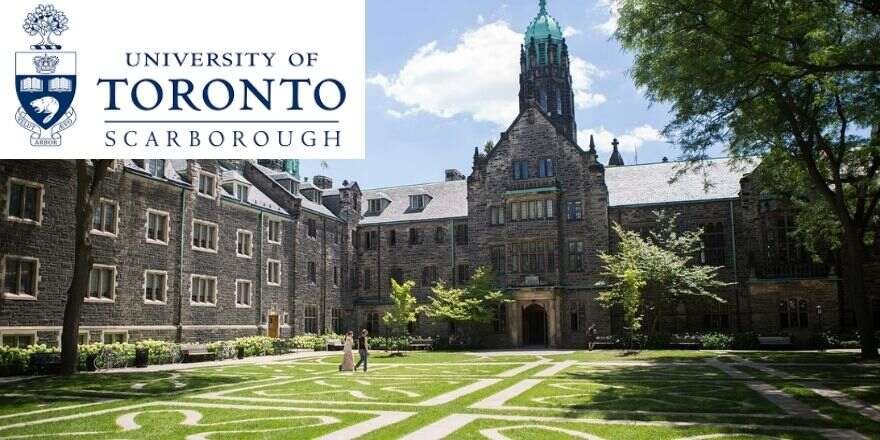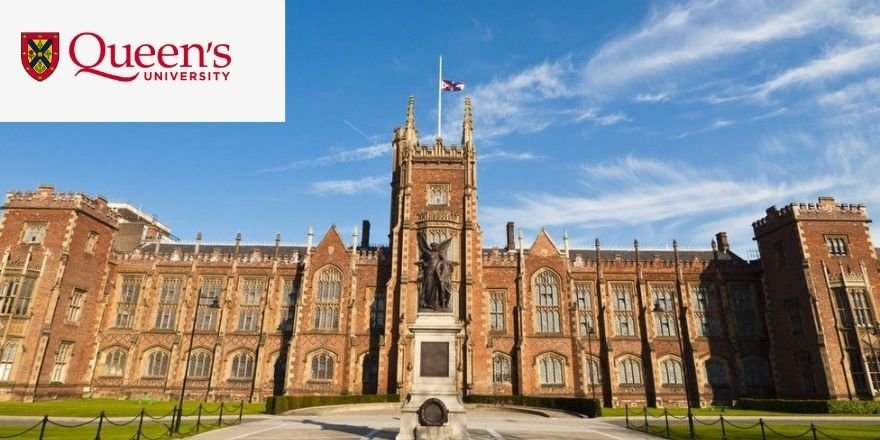A law degree is a professional degree that opens up a wide range of career opportunities. Lawyers play a vital role in society, working to uphold the law and protect the rights of individuals and organizations.
Canada has some of the best law schools in the world, offering rigorous academic programs and opportunities for students to gain practical experience. If you are considering a career in law, studying at one of the law schools in Canada is an excellent option.
In a short while, we will be looking at the top 16 best law schools in Canada, based on a variety of factors, including academic reputation, bar passage rates, and student satisfaction. If you are interested in pursuing a career in law, this article is a valuable resource for helping you choose the right law school in Canada for you.
Table of Contents
Best Law Schools in Canada
1. University of Toronto

Location:
- 78 Queens Park, Toronto, ON M5S 2C5, Canada
Requirement:
- Minimum GPA of 3.6 for ug and 73-75% for pg.
Fees:
- Canadian students: $9,332.54
- International students: $45,690
Duration:
- 3 years
The University of Toronto Faculty of Law is one of the largest and most prestigious law schools in Canada. It is consistently ranked among the top law schools in the world, and its graduates are highly sought-after by employers in both the public and private sectors.
The faculty offers a wide range of academic programs, including a Juris Doctor (JD) degree, a Master of Laws (LLM) degree, and a Doctor of Philosophy (PhD) degree in law.
The JD program is a three-year program that prepares students for the practice of law in Canada. The LLM and PhD programs are research-intensive programs that are designed for students who are interested in pursuing careers in academia or government.
The faculty offers a variety of clinical programs that give students the opportunity to gain practical experience in the law. These programs include the Downtown Legal Services clinic, the Innocence Project, and the International Human Rights Program.
The faculty has a diverse student body, with students from all over Canada and the world. The faculty also has a strong alumni network, which provides students and graduates with access to a wide range of resources and support.
2. McGill University
Location:
- 845 Sherbrooke St W, Montreal, Quebec H3A 0G4, Canada
Requirements:
- A bachelor’s degree from an accredited institution
- A minimum GPA of 85%
- A minimum LSAT score of 165
Fees:
- Canadian students: $10,841.01
- International students: $52,359.21
Duration:
- 4 years
The McGill University Faculty of Law is one of the leading law schools in Canada. It is known for its rigorous academic program, its strong research reputation, and its diverse student body.
The faculty offers a Juris Doctor (JD) degree, a Master of Laws (LLM) degree, and a Doctor of Philosophy (PhD) degree in law.
These program covers a wide range of legal topics, including constitutional law, criminal law, civil law, and business law. Students also have the opportunity to participate in clinical programs that give them the opportunity to gain practical experience in the law.
The McGill University Faculty of Law has a strong reputation for its research excellence. Its faculty members are internationally recognized scholars in a wide range of legal fields, and the faculty also has a number of research centers and institutes that support the research of its faculty and students.
3. University of British Columbia
Location:
- Allard Hall, 1822 E Mall, Vancouver, British Columbia, V6T 1Z1, Canada
Requirements:
- A bachelor’s degree from an accredited institution with a minimum GPA of 3.0
- A minimum LSAT score of 160
Fees:
- Canadian students: $12,861.00
- International students: $49,095.00
Duration:
- 3 years
The University of British Columbia Faculty of Law is one of the leading law schools in Canada. This institution is known for its rigorous academic program, and strong research reputation.
The University of British Columbia Faculty of Law is committed to social justice. The faculty offers a number of courses and programs that focus on social justice issues, such as Indigenous law, environmental law, and human rights law.
Their law courses covers a wide range of legal topics, including constitutional law, criminal law, civil law, and business law. Their students also have the opportunity to participate in clinical programs that give them the opportunity to gain practical experience in the law.
4. Université de Montréal
Location:
- 3101 Tour Rd, Montreal, Quebec H3T 1J7, Canada
Requirements:
- A bachelor’s degree from an accredited institution with a minimum GPA of 3.3
- A minimum LSAT score of 160
Fees:
- Canadian students: $10,841.01
- International students: $52,359.21
Duration:
- 3 years
Another institution on our list of law schools in Canada known for its rigorous academic program, strong research reputation, and its commitment to bilingualism is the the Université de Montréal Faculté de droit. The faculty offers a Doctor of Jurisprudence degree, a Master of Laws (LLM) degree, and a Doctor of Philosophy (PhD) degree in law.
In addition to its academic excellence and commitment to bilingualism, the Université de Montréal Faculté de droit is also known for its innovative and forward-thinking approach to legal education. The faculty is constantly striving to bring new and innovative programs and courses to its students. For example, the faculty recently launched a new program in artificial intelligence and law.
The Université de Montréal Faculté de droit is an excellent choice for students who are interested in pursuing a career in law in Quebec. It offers a rigorous academic program, opportunities for students to gain practical experience, and a commitment to bilingualism.
5. Queen’s University

Location:
- 128 Union St, Kingston, Ontario K7L 2P1, Canada
Requirements:
- A minimum LSAT score of 160
- A bachelor’s degree from an accredited institution with a minimum GPA of 3.3
Fees:
- Tuition and fees for Canadian students: $19,435.00
- Tuition and fees for international students: $58,170.00
Duration:
- 4 years
Queen’s University’s Faculty of Law makes the Queen’s University regarded as one of the greatest law schools in Canada. With about 24 research centers and membership in the U-15 group of research-intensive Canadian universities, it is no wonder the school is on the list.
By commitment to truth, accountability, respect, and well-being, this school has been raising knowledgeable lawyers into the society for over a decade now. The school welcomes students from all over the world, further validating its reputation.
With approximately 31,000 full and part-time students, the institution has seen an increase in recent years, making it a great environment for students.
Queen’s University’s Faculty of Law is one of the few law schools in Canada that offers a rigorous academic program, opportunities for students to gain practical experience, and a commitment to social justice.
6. Osgoode Hall Law School (York University)
Location:
- 4700 Keele St, North York, ON M3J 1P3, Canada
Requirements:
- A bachelor’s degree from an accredited institution with a minimum GPA of 3.3
- A minimum LSAT score of 160
Fees:
- Canadian students: $24,802.26
- International students: $36,560.62
Duration:
- 4 years
York University Law School is currently ranking among the top 10 law schools in Canada, and is known widely for its strong reputation of training some of the best lawyers in Canada. The school offers a four-year program that prepares students for the practice of law in Canada.
The program covers a wide range of legal topics, including constitutional law, criminal law, civil law, and business law. Students also have the opportunity to participate in clinical programs that give them the opportunity to gain practical experience in the law.
The York University Law School is committed to social justice, and aside from the 3 years program, the school also offers a number of courses and programs that focus on social justice issues, such as Indigenous law, environmental law, and human rights law.
7. University of Ottawa
Location:
- Fauteux Hall, 57 Louis-Pasteur Private, Ottawa, ON K1N 6N5, Canada
Requirements:
- A bachelor’s degree from an accredited institution with a minimum GPA of 3.0
- A minimum LSAT score of 158
Fees:
- Canadian students: $13,081.00
- International students: $52,905.00
Duration:
- 3 years
The University of Ottawa Faculty of Law is a global leader in a number of fields, including human rights and environmental law. It is also the largest bilingual (English and French) law school in the world. This school is one of the best law schools in Canada for students who are interested in pursuing a career in law, especially if they are interested in bilingualism or social justice.
The University of Ottawa Faculty of Law provides a one-of-a-kind educational experience due to its location in the National Capital, which is home to the Supreme Court of Canada, the federal government, several NGOs, and a thriving high-tech community. Students can study from some of the field’s top specialists while also gaining practical experience through a range of “hands-on” learning experiences.
The Faculty of Law at the University of Ottawa is also committed to diversity and inclusion. Students at the faculty come from all over the world and have a diverse range of backgrounds and experiences.
8. Western University
Location:
- 1151 Richmond Street, London, ON N6A 3K7, Canada
Requirements:
- A bachelor’s degree from an accredited institution with a minimum GPA of 3.3
- A minimum LSAT score of 160
Fees:
- Canadian students: $19,435.00
- International students: $58,170.00
Duration:
- 3 years
Another institution on our list of law schools in Canada is the Western University. With 1400 faculty members and approximately a student population of around 35,000, this school has become a hub for students wanting to make their career in law.
The faculty offers a Juris Doctor (JD) degree, a Master of Laws (LLM) degree, and a Doctor of Philosophy (PhD) degree in law. Their JD degree covers a wide range of legal topics, including constitutional law, criminal law, civil law, and business law, preparing students for Law in the country.
Western Law offers a number of specializations in the field of law, including:
- Business Law
- Constitutional Law
- Criminal Law
- Environmental Law
- Family Law
- Health Law
- Human Rights Law
- Indigenous Law
- Intellectual Property Law
- International Law
- Labour Law
- Public Law
- Tax Law
This University is one of the best law schools in Canada for students who are interested in pursuing a career in law, with an all rounded understanding.
9. Dalhousie University

Location:
- 6299 South St, Halifax, NS B3H 4R2, Canada
Requirements:
- A minimum LSAT score of 155
- A bachelor’s degree from an accredited institution with a minimum GPA of 3.0
Fees:
- Canadian students: $16,215.01
- International students: $53,112.21
Duration:
- 3 years
Popularly known for its rigorous academic program, strong research reputation, and its commitment to practical legal education, Dalhousie University is regarded as one of the best law schools in Canada. Their Law faculty offers a Juris Doctor (JD) degree, a Master of Laws (LLM) degree, and a Doctor of Philosophy (PhD) degree in law.
The school is regarded as one of the best law schools in Canada due to a variety of factors including the following:
- Dalhousie University is known for its code of conduct and practical approach toward education.
- Dalhousie University has been actively involved in creating social awareness for the betterment of society and encouraging its students to participate in the research programs organized by the university actively.
- Dalhousie University is a member of the U15 Group of Canadian Universities, which has a record of producing some of the finest world-leading researchers.
- Dalhousie University has a student body of more than 20,000 students.
Dalhousie University is committed to social justice, thorough research, and diversity. The school is a highly selective institution that offers students a world-class legal education.
10. University of Alberta
Location:
- 111 89 Ave NW, Edmonton, AB T6G 2H5, Canada
Requirements:
- A bachelor’s degree from an accredited institution with a minimum GPA of 3.0
- A minimum LSAT score of 160
Fees:
- Canadian students: $5,541.12
- international students: $19,261.4
Duration:
- 4 years
The University of Alberta is one of the most significant law schools in Canada, with around 40,061 students from 156 countries. This law school has an international reputation for expertise in a variety of subjects, distinguishing it from other law schools in Canada.
The school concentrates on three main topics and appears to have been running on them for the previous few years: why, what, and how.
The University of Alberta Faculty of Law is an excellent choice for students who are interested in pursuing a career in law. It offers a rigorous academic program, opportunities for students to gain practical experience, and a commitment to social justice and excellence.
11. University of Calgary
Location:
- 2500 University Dr NW, Calgary, AB T2N 1N4, Canada
Requirements:
- A minimum LSAT score of 155
Fees:
- Canadian students: $10,841.01
- International students: $52,359.21
Duration:
- 3 years
Another school on our list of law schools in Canada is the University of Calgary. The University of Calgary excels in the field of law, with a rigorous curriculum that provides a well-rounded education encompassing both theory and practical skills crucial for future professional success.
Due to it’s recognition as one of the best law schools in Canada, the University of Calgary law students have promising opportunities for employment or internships at globally renowned law firms such as Jones Day and Linklaters.
This university is an excellent choice for students who are interested in pursuing a career in law. It offers a rigorous academic program, opportunities for students to gain practical experience, and a commitment to preparing students for professional success.
12. University of Manitoba

Location:
- 2500 University Dr NW, Calgary, AB T2N 1N4, Canada
Requirements:
- A bachelor’s degree from an accredited institution with a minimum GPA of 3.3
- A minimum LSAT score of 160
Fees:
- Canadian students: $19,435.00
- International students: $58,170.00
Duration:
- 3 years
The University of Manitoba Faculty of Law is a great choice for students who are interested in pursuing a career in law, especially for those who are interested in advocacy and clinical work. It is known for its rigorous academic program, its strong research reputation, and its commitment to social justice.
Robson Hall is known for its advocacy and clinical components, which include several required and optional courses in legal advocacy, negotiation, legal methods, judge shadowing, mooting, and intensive clinical opportunities throughout the degree program.
The school has won over thirteen Western Canada Moot Trial Competitions, and routinely places at national moot competitions.
The University of Manitoba Faculty of Law is also committed to social justice. The faculty offers a number of courses and programs that focus on social justice issues, such as Indigenous law, environmental law, and human rights law.
In addition to its strong academic program and its focus on advocacy and clinical work, the University of Manitoba Faculty of Law is also known for its welcoming and supportive community. Students at Robson Hall come from a variety of backgrounds and experiences, and the faculty is committed to providing them with the support they need to succeed.
13. University of Saskatchewan
Location:
- 105 Administration Pl, Saskatoon, SK S7N 5A2, Canada
Requirements:
- A bachelor’s degree from an accredited institution with a minimum GPA of 3.0
- A minimum LSAT score of 158
Fees:
- Canadian students: $16,929.00
- International students: $71,102.00
Duration:
- 4 years
The University of Saskatchewan Faculty of Law is the oldest law school in Western Canada, established in 1912. It is located in Saskatoon, Saskatchewan, Canada. The faculty offers a Juris Doctor (JD) degree, a Master of Laws (LLM) degree, and a Doctor of Philosophy (PhD) degree in law.
The University of Saskatchewan Faculty of Law is committed to social justice. The faculty offers a number of courses and programs that focus on social justice issues, such as Indigenous law, environmental law, and human rights law. The faculty also has a number of student organizations that are dedicated to social justice issues.
The law library contains numerous artifacts, including one of the most unusual holographic wills ever written – the tractor fender of Cecil George Harris, who was trapped when his tractor overturned.
The Law Students’ Association hosts an annual hockey tournament in March or April, known as The Challenge Cup. The format of the one-day tournament sees first, second, and third year students form respective teams to battle with one another as well as with teams composed of Junior and Senior Alumni.
14. University of Victoria
Location:
- Fraser Bldg, Victoria, BC V8P 5C2, Canada
Requirements:
- A bachelor’s degree from an accredited institution with a minimum GPA of 3.0
- A minimum LSAT score of 158
Fees:
- Canadian students: $10,790.00
- International students: $52,905.00
Duration:
- 3 years
The University of Victoria Faculty of Law is one of the top law schools in Canada. It is known for its academic excellence, its commitment to teaching, its approach to practical learning, and its commitment to social justice.
The JD program at the University of Victoria Faculty of Law is a three-year program that prepares students for the practice of law in Canada. The program covers a wide range of legal topics, including constitutional law, criminal law, civil law, and business law.
The University of Victoria Faculty of Law is known for its focus on conceptual clarity in the first year of the program. In the second and third years, students have the opportunity to shape their own law program according to their preferences.
The faculty offers a wide range of courses and specializations, so students can focus on the areas of law that they are most interested in.
15. Laval University
Location:
- 1030 Av. des Sciences Humaines, Québec, QC G1V 0A6, Canada
Requirements:
- A bachelor’s degree from an accredited institution with a minimum GPA of 3.0
Fees:
- Canadian students: $13,081.00
- International students: $52,905.00
Duration:
- 3 years
Laval University Faculty of Law is one of the most renowned law schools in Canada. It is the oldest French-language law school in North America and the largest bilingual (English and French) law school in the world. The faculty is known for its rigorous academic program, its strong research reputation, and its commitment to social justice.
Laval University Faculty of Law is committed to social justice. The faculty offers a number of courses and programs that focus on social justice issues, such as Indigenous law, environmental law, and human rights law. The faculty also has a number of student organizations that are dedicated to social justice issues.
16. University of Sherbrooke

Location:
- 2500 Bd de l’Université, Sherbrooke, QC J1K 2R1, Canada
Requirements:
- A bachelor’s degree from an accredited institution with a minimum GPA of 3.0
- A minimum LSAT score of 160
Fees:
- Canadian students: $5,541.12
- International students: $19,261.4
Duration:
- 3 years
The University of Sherbrooke Faculty of Law is a French-language law school located in Sherbrooke, Quebec, Canada. It is one of the largest law schools in the province, with over 1,300 students enrolled. The faculty offers a variety of programs, including a Juris Doctor (JD) degree, a Master of Laws (LLM) degree, and a Doctor of Philosophy (PhD) degree in law.
The University of Sherbrooke Faculty of Law is known for its rigorous academic program and its strong research reputation. The faculty has a number of renowned scholars in a variety of legal fields. The faculty also has a number of research centers and institutes that support the research of its faculty and students.
The University of Sherbrooke Faculty of Law is also committed to social justice. The faculty offers a number of courses and programs that focus on social justice issues, such as Indigenous law, environmental law, and human rights law.
Benefits of Studying Law in Canada
Canada is a great place to study law. It has a strong legal tradition, a world-class education system, and a diverse population. Here are some of the benefits of studying law in Canada:
- Rigorous academic programs: Canadian law schools offer rigorous academic programs that prepare students for the practice of law in Canada and around the world.
- Affordable tuition: Tuition fees for law school in Canada are relatively affordable, especially for Canadian students.
- Diverse student body: Canadian law schools have a diverse student body, with students from all over the world. This provides students with the opportunity to learn about different legal systems and cultures.
- Opportunities for practical experience: Canadian law schools offer students a variety of opportunities to gain practical experience in the law, through clinical programs, internships, and mooting competitions.
- Job prospects: Law graduates in Canada have good job prospects. There is a strong demand for lawyers in Canada, and law graduates can pursue careers in a variety of settings, including private practice, government, and academia.
FAQs
What Canadian university has the best law program?
At the time of writing, the University of Toronto has the best law program in Canada. The school is well-known for its education system as well as its unique method of innovation and research.
What GPA is accepted for law schools in Canada?
The average GPA accepted in law schools in Canada is 3.2. To qualify for one of the law schools in Canada, you need an average of 3.2 GPA.
Can I study law in Canada as an international student?
Yes. There are many law schools in Canada that allow registration of international students from all over the world. These include;
- University of Toronto
- McGill University
- Queen’s University
- Dalhousie University
- University of Calgary
How long does law school take in Canada?
The average law school in Canada offers a three year Juris Doctor (JD) degree in law. Others can vary from 3 to 5 years.
Wrap Up
Canada is a great place to study law. The law schools in Canada offer rigorous academic programs, affordable tuition fees, a diverse student body, opportunities for practical experience, and good job prospects.
In addition, studying law in Canada offers a number of specific advantages, such as the opportunity to learn about French civil law, to specialize in Indigenous law, and to study international law.
If you are interested in pursuing a career in law, I encourage you to consider studying law in Canada, as it is a great place to get a world-class legal education and to prepare for a successful career in law.

